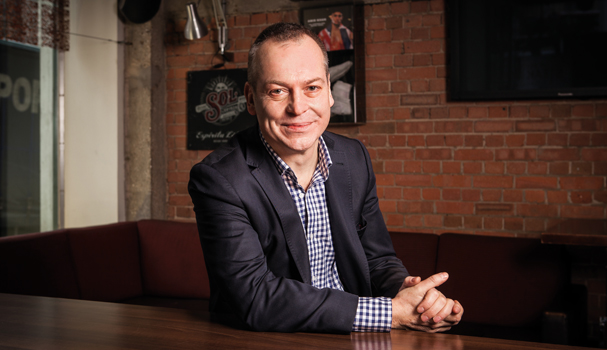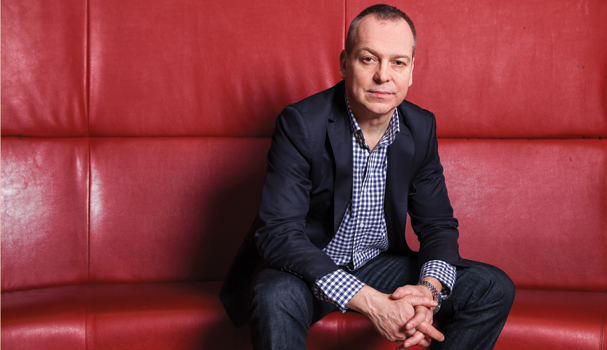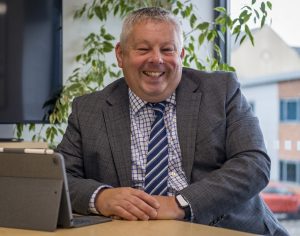In May 1993, London was gripped by Planet Hollywood fever. Following the success of the first outlet in New York’s Times Square, the UK capital was picked to house the new Planet Hollywood bar and restaurant – much to the delight of movie fans who turned out in their droves to witness the star-studded bash. Up to 250,000 spectators stood in queues snaking around London’s West End just to get a peak of A-list Hollywood celebrities who attended the opening, including the restaurant’s founder-investors Bruce Willis, Sylvester Stallone and Arnold Schwarzenegger.”
The fans weren’t the only ones to get swept away in the hype. Founder Robert Earl, a UK-born entrepreneur, decided to capitalise on the brand’s initial success and expanded quickly – too quickly, as it turned out. When it went public in April 1996, the company’s share price was listed at $32 – by 1999, it stood at less than $1. The company has also gone bankrupt twice. The cause? Too much, too soon, suggests Alex Garland, who as managing director of Earl Enterprises, Europe Middle East & India, is Robert Earl’s right-hand man on these shores.
“Planet Hollywood opened some franchises in the 1990s. Some did work but some didn’t,” he explains. “It was so hot in the 90s and it grew so rapidly – so many people wanted a Planet and they were being opened in cities that weren’t right; they didn’t have enough people in the places to open there.” After all, these are big restaurants – on average measuring 10,000 – 20,000 sq ft – so they needed a critical mass to be successful.
What’s more, franchise owners weren’t necessarily vetted closely enough, he admits. “They were probably being franchised to people who didn’t have enough background or experience to run such a huge restaurant,” says Garland. “I think that led to the problems.””
Needless to say, when Garland joined Planet Hollywood in 2002, it was a far cry from the roaring success it had been in the 1990s. But rather than dissuading him from joining, he was galvanised by the prospect of helping right the ship. “It was struggling, big time. People said it was past it. But in some ways that’s a challenge.” It wasn’t the first time he’d been in a turnaround situation. In his previous role as food and beverage manager at Selfridges, he’d been brought in to shake things up. “A new team had been brought in to make improvements. My job at the time was to start afresh with new management, new staff and make some tough changes as quickly as possible,” he explains.

After leaving the iconic department store in 2000, he joined Atlantic, which was once the coolest bar and restaurant in London’s West End. “The Atlantic wasn’t too dissimilar because it was a little bit tough when I got in there, trying to straighten the ship. I’d been exposed to some of those elements before, so I knew it was going to be tough [when I joined Planet Hollywood].”
Earl had been forthcoming about the challenges facing his iconic restaurant brand and was fastidious about selecting its new UK boss: “In the end, I ended up having about five interviews with him and various other people. He took it very seriously… I think Planet Hollywood is very close to his heart,” says Garland. “Robert certainly said it was a challenge, that London wasn’t performing [very well]. It was still busy, still a name but not great. So there was a challenge there, but I felt I could make a difference. Plus, I liked him. I liked the way he spoke. He’s an amazing character, [he’s] highly intelligent.””
A few months after joining in 2002, Garland began plotting a facelift of the central London venue. “We put a bit of money into it and made it look a bit cleaner. We added a DJ booth, we changed the menu, we brought some new kitchen equipment in. We also changed some of the managers and staff and we added a nightclub in the basement,” he explains. In 2009, when the lease ran out, Planet Hollywood moved from its home on Coventry Street to Haymarket.
The changes had the desired effect. “I worked very hard on it but I loved it and gradually we righted the ship. I’m not saying we ever got back to the halcyon days but still today, as it always has been, every Saturday you can’t get in. There are queues out of the door.””
A primary focus for Garland when he was spearheading the facelift of Planet Hollywood was on standards. “Robert worked very closely with me on trying to get the service right, get the ethics right and get the atmosphere right,” he says.”
“My role for the last 18 months has been developing our brands outside of America,” he explains. So far, the task has taken him predominantly to the Middle East, where there has been considerable interest in Earl Enterprises’ wares. There are currently two major deals on the table: Buca di Beppo signed a franchise agreement with the Gulf General Investment Company (GGICO) to open ten restaurants across the UAE. The first will open in Ferrari World, Abu Dhabi, in late February, with two more sites in Abu Dhabi and Dubai to follow this Spring. Earl of Sandwich is in on the act too: the sandwich chain signed a franchise agreement with The Palma Group, the Qatari hospitality group, to open five restaurants. The first will open in the Medina Central Mall in Doha, Qatar, this year.”
Garland’s foray into franchising with Earl Enterprises is his first. “I didn’t know a lot about franchising in the early days,” he admits. “I knew a bit about it in terms of the operational – helping to get them open – but I hadn’t been part of any deal. Now it was me from A to Z.” The key was to solicit the advice of industry experts. “I spoke to them and said, ‘tell me how you do this’. I watched others and learnt.”
His own experience opening and running restaurants stood him in good stead too. Garland has lived and breathed the hospitality industry since he was a twinkle in his father’s eye. Garland Senior worked in luxury hotels and was the one-time general manager of the Churchill Hotel London, now the Hyatt Regency. Having decided his own future was more likely to lie in food and beverage (F&B) than hotels, Garland worked as a chef at the Savoy and was also a manager at Cafe Rouge during the chain’s meteoric rise. This means he was a good judge of the type of people who should be involved in the starting and running of a restaurant.”
“I did know from looking at owners and operators, if they were not going to be good or because they don’t have a background of culture of being in F&B,” he says.”

Hannah Prevett
Prevett likes to think she's something of an expert when it comes to small business. Having cut her teeth writing about tech, she latterly moved on to such illustrious titles as Growing Business, Management Today and the Sunday Times to indulge her enthusiasm for entrepreneurship: from P&Ls to private equity and all that's in between, you can't keep this girl away from the heady world of start-ups.
Back in the day when she had spare time, she would spend it networking, horse riding, drafting and re-drafting ideas for novels, and playing auntie to her niece and three god-children. Those were the days...

Hannah Prevett
Prevett likes to think she's something of an expert when it comes to small business. Having cut her teeth writing about tech, she latterly moved on to such illustrious titles as Growing Business, Management Today and the Sunday Times to indulge her enthusiasm for entrepreneurship: from P&Ls to private equity and all that's in between, you can't keep this girl away from the heady world of start-ups.
Back in the day when she had spare time, she would spend it networking, horse riding, drafting and re-drafting ideas for novels, and playing auntie to her niece and three god-children. Those were the days...


































